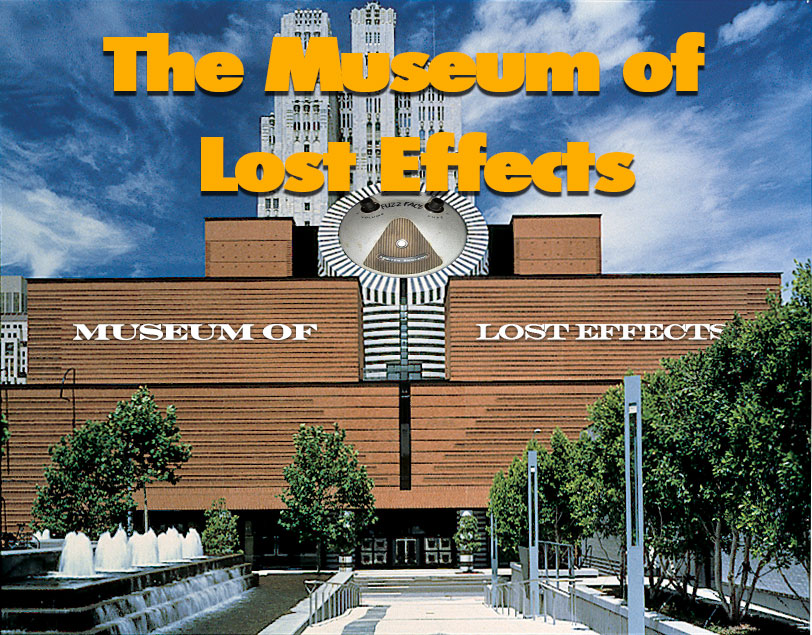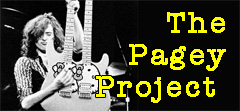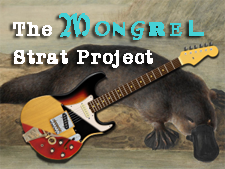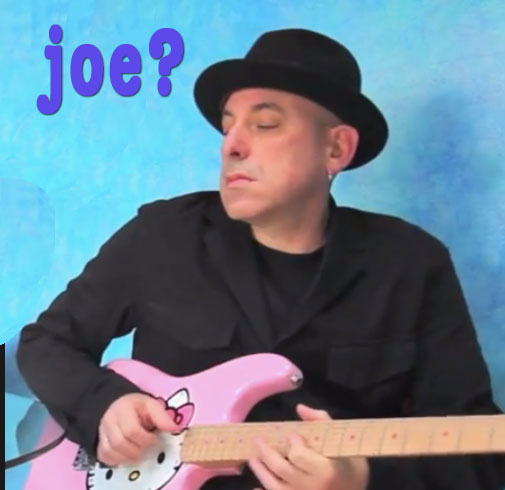Here’s reader Freddie Lenzel, writing in response to my post on the bizarre late-medieval composition Fumee fume par fumee:
To me, it sort of sounds like The Shaggs from the Dark Ages. But seriously, it’s really interesting. Greetings from Spain, love your blog.
And I love your comment, Freddie! It really strikes a chord (pun intended), because the Shaggs have always sounded medieval to me. And I think I can explain why.
(But first: If you don’t know the Shaggs, stop reading this second and make your acquaintance with the group and their 1969 magnum opus, Philosophy of the World. Kurt Cobain cited it as one of the five-best albums of all time, and Frank Zappa insisted that the Shaggs were “better than the Beatles,” words that inspired this indie-trash tribute album. Meanwhile, NRBQ’s Terry Adams, who launched the Shaggs revival by getting Philosphy re-released in 1980, rightfully compared their homespun sound to Ornette Coleman’s free jazz.)
The Shaggs weren’t the only band to make an album before they knew how to play or write music, but they were one of the best. Many musicians, when first exposed to the Shaggs’ idiot-savant sound, compare it to what might result if you explained music to an alien species unfamiliar with the concept, and then sent them into the studio before letting them hear any actual music. Shaggs songs have no underlying chord structures, no consistent meter, no conventional phrasing, and little harmonization. It’s just odd, meandering “melodies” that stumble along until singer/guitarist Dot Wiggin happens to require a breath. Why, it’s practically…medieval!
By their own account, the Shaggs had no knowledge of music whatsoever, let alone any insight into pre-Renaissance aesthetics. But in “inventing” music from scratch, they retraced many of the steps taken by their Dark Ages predecessors when they struggled to conceive polyphonic music.
Most modern music has underlying chord structures. Melodies are strung across these structures like cables stretching between the concrete piers of a suspension bridge. But medieval melodies are more like threads in a cobweb — they connect only with each other, not to any underlying framework. In the Middle Ages there were precise (albeit ever-changing) rules governing how the melodies could be constructed and how they could be superimposed, but there was no chordal “superstructure.” Musical cadences usually occur on unisons or octaves, and sometimes fifths. (In fact, the Fumeux fum par fumee phrases that linger on minor triads are among the piece’s most shocking details.) And just as Fumeux wavers uncertainly between 3/4 and 2/4 time, the Shaggs’ music wobbles along with something resembling a pulse, but one that rarely congeals into a recognizable time signature.
Some of our musical conventions are so deeply ingrained, they can feel hardwired into our brains. But they’re not — they really are merely conventions. For me, one of the big attractions of medieval music is the way it offers a glimpse into how musicians dealt with melody, rhythm, harmony, and structure before those conventions had firmly taken root. And I get exactly the same buzz from the Shaggs. (And if you strip away the drums and electric guitars, songs such as “Who Are Parents?” and “My Pal Foot Foot” sound an awful lot like Gregorian chant…)









As a longtime Shaggs fan, the “Medieval” perspective never entered my mind. My mind was busy reeling from “My Pal Foot Foot” and “Halloween.” Sadly, there’s no real family tree with the Shaggs at the root or trunk, no direct descendents. Wild Man Fischer sounds like he might have been influenced by them, but only in a single-voice, non-harmonized way.
My wife’s head nearly exploded the first time I played her “My Pal Foot”, and not really in a good way. Some people prefer their outsider art more on the inside. 😉 I’ve always been baffled but enthralled by them, particularly coming from a garage-rock background. Probably no band ever deserved the ‘garage-rock’ tag more than the Shaggs.
Daniel Johnson’s earliest work has some of the wacko melodic content, but he had a pretty intuitive sense about chords…Do you suppose that keyboard instruments taking a dominant role in music had a role to play in the creation of the ‘superstructure’? It seems like it would be difficult to play a piano for any length of time without coming up with a chordal concept, but then again, maybe it’s too ingrained in us for us to think of it another way.
All of this has been tremendously enlightening; I love pulling the commonalities in music together and putting musically game-changing developments into an historical context, but mostly I’ve only studied American music.
Wow, great question!
My general sense is that the “superstructure” gradually congealed over the course of the 16th through 18th centuries. The notion of a song consisting of a melody strung across a chord progression is, I think, a fairly recent development, just a couple of hundred years old.
While musicians today are likely to think of a “song” in terms of a melody weaving around a fixed chord progression, in earlier times harmony was perceived as the result of individual voices, not a “scaffolding” for them. I think that even today (or at least a few decades ago when I was a student), you still observe that distinction between players with classical training and those from pop/rock backgrounds. To grossly oversimplify, classical players are more likely to hear chords deriving from multiple melodies, and pop players are likelier to perceive melody threading around chords.
I think that’s one explanation for the breed of classical musicians who are monstrously skilled, but can’t improvise worth a crap. Pop players are more likely to have a fixed harmonic structure in mind, a springboard for improv.
Again, I over-simplify. But I have known musicians who could perfectly notate passages of three- or four-part counterpoint by ear after one or two hearings, but who couldn’t, say, figure out the changes to “I Can’t Help (Falling in Love With You)” to save their lives. Or even wrap their heads around the concept of “changes.”
Back in the eighties I had about half a year’s worth of classical guitar lessons from a pretty heavy local lutist/early music specialist. It used to frustrate me that we could never talk about what key or what structure each piece involved. Like, why? Why does that sound good? What’s the underlying concept?
Now I can see how I was trying to impose modern pop notions on music that predated it (in my utterly naive, teenage rock’n’roller kinda’ way). It all makes more sense to me now. Thank you.
I know what you mean! And seriously, I sometimes fantasize about going back into academia to explore ideas like that. Developing the ability to “hear as other people heard.”
In classically based music theory courses, practices are presented as “rules.” But when the music in question was written, it may have just been simple aesthetics. I don’t think Beethoven or Schubert ever thought about forcing their ideas into the standardized mold of “sonata form.” They’re in sonata form because for those composers’ ears, in their times, sonata form was simply the most expressive way to develop their ideas. It was good storytelling.
Any rock guitarist who’s tackled traditional theory has run into the “parallel fifths” issue. I swear I interviewed more than one amiable metalhead who said something like: “They told me I couldn’t use parallel fifths in my chord progressions, and I’m, like, um, the music I like is ONLY parallel fifths.”
But Bach didn’t avoid parallel fifths because he didn’t want his 20 children rocking out. Parallel fifths sounded bad to his ears in his times.
I’m still recovering from the anti-parallel 5ths rules I studied in school. No mater how much I like their sound, I don’t trust them. I assume everyone else must think they sound horrible, so I still try to avoid them if I can. And I’ve found a number of other folks in rock who studied classical theory who have that same hesitation.
Also, I’m going to second the opinion that classical players think more in terms of melody and rock players are more chords. That’s another thing I struggle with. If someone said, “it’s just C, F, G, C over and over again”, I’d get confused and loose my place halfway through. On the other hand, if someone played an outrageously complicated melody and told me to harmonize, I wouldn’t bat an eye.
One last geeky classical music reference… When Stravinsky wrote “A Soldier’s Tale”, he incorporated a “jazz” section based solely on having seen jazz sheet music, but never having heard it played before. So, in a way not too unlike The Shaggs, he reinvented his own ridiculously square version of a pre-existing music.
True story!
I’ve said it before and I’ll say it again: This was Stravinsky’s favorite restaurant after he moved to LA:
Try as I might, I can’t listen to the Shaggs for more than a few minutes. And I like weird stuff. 🙂
While I find some of it kind of interesting, the drummer kills it for me. lol Was she in the same room as the others when they recorded the album?
Hi Joe!!
Thinking about “our musical conventions” two great books comes to mind: Anton Webern´s “The Path to the New Music” and Ferruccio Busoni´s ” Sketch Of A New Esthetic Of Music”.
Thanks for the tips — never read either one!
The Busoni is free on Kindle: https://www.amazon.com/Sketch-New-Esthetic-Music-ebook/dp/B004TPD5MW/ref=sr_1_2_bnp_1_kin?ie=UTF8&qid=1369072867&sr=8-2&keywords=busoni+sketch
You can download the Webern for free here: https://archive.org/details/antonwebernthepa007300mbp
I make a comment off the top of my head and get a load of extremely interesting information. It has made me think about how I look at music; perhaps it was about time. You see, I am a self taught guitarist (in time, I also learned by myself to read and write music), and I remember I started playing melodies instead of chords, it appealed to me more. This topic has made me realise (never thought much about it , it seems) that to me, music is still more lines moving together than chords. And I’m not a classical musician by any means, though I love playing classical music on classical guitar.
On the other hand, I happen to have a brother who is a classical violinist, composer and conductor of a certain level. Not that he was my teacher, but of course much of the information I used when learning came from him. I paid him back by opening his world to prog rock, basically; we still share total adoration for Gentle Giant, Van der Graaf, the Canterbury scene, etc.
On violin he can not improvise much, but he LETS LOOSE if he gets his hands on a piano (his hands, by the way, are so big that he can play chords many pianists can’t) or a guitar, specially electric. Why? Perhaps because those are instruments he never learned to play “properly”.
Check, if you will, this video from his youtube channel: https://www.youtube.com/watch?v=zfHN8iNd6ok&list=UUcyLKKYizpFLMgEn196a4NQ&index=7
Concerto Funebre, played in the middle of the street at what used to be Checkpoint charlie in Berlin.
Oh, forgive the extension, the meandering, and my English, which of course is not my native tongue. (Freddie Lentzell is not my real name, either. Alfredo Odriozola is).
Classical music is really just simple lines, intertwining…much like Mozart and Bach:
That’s it. Nigel knows better.
(It was a shock to me, by the way, to discover that Christopher Guest also played the villain in The Princess Bride).
I just learned about The Shaggs two days ago. Yesterday I was still wondering whether they just played, but today I learned they actually rehearsed for years. The medieval connection of independent music lines also crossed my mind. I’m not a musician, but read about the concept and have listened to medieval music to learn about it. It great to read that other people have similar ideas.